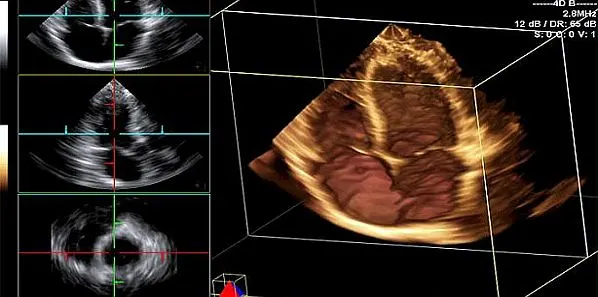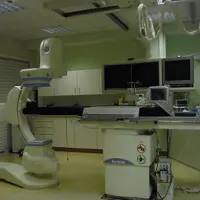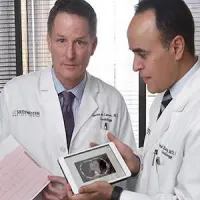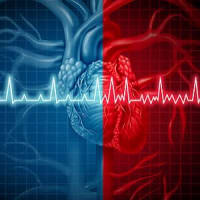The American Heart Association (AHA) has issued a new scientific statement stressing the importance of clinicians to understand the risks of heart imaging involving radiation and to discuss these with patients before ordering such tests. The advisory came out amidst increasing reliance on the use of medical imaging to diagnose and treat patients with heart disease, the leading cause of death in the United States.
The increased use of imaging tests has resulted in a rise in radiation exposure for cardiac patients. "Heart imaging procedures account for almost 40 percent of the radiation exposure from medical imaging," said Dr. Reza Fazel, a cardiologist at Beth Israel Deaconess Medical Center in Boston, Massachusetts, and chair of the writing committee for the statement.
The most common heart imaging tests involving radiation include computed tomography (CT) scans, such as coronary artery calcium scores and CT anagrams of the heart, fluoroscopy, and nuclear medicine tests, such as the nuclear stress test. Exposure to radiation is linked to an array of side effects, such as diarrhoea, vomiting, internal bleeding, damage to the central nervous system, cancer, and even death.
Currently, there is no federal regulation on the doses of radiation that should be used in medical imaging, except for mammography used for breast cancer screening. The seriousness of side effects can be dependent on the doses of radiation an individual is exposed to, Dr. Fazel and colleagues said, noting that it is up to clinicians to judge which imaging tests and radiation doses are best for the patient.
In 2009, the AHA released a statement calling for clinicians to be cautious when it comes to administering heart imaging tests in patients, and providing some general guidelines for the use of such tests. In their latest statement on the issue, the AHA sets out in more detail what health care providers should take into account when ordering heart imaging tests. The group also provides practical guidelines on the use of these tests.
The new statement recommends that clinicians who order heart imaging tests should ensure they understand when each test is appropriate for patients, the doses of radiation involved and the risks of each test.
"Radiation-related risk is one of the factors that should be considered in the decision to use cardiovascular imaging with ionising radiation, particularly in younger patients in whom the potential risk of radiation exposure is thought to be higher," Dr. Fazel said.
In addition, clinicians should be aware of the diagnostic accuracy of each test, as well as the cost, availability and convenience, the statement authors said, noting that professionals who perform the imaging tests should also be aware of how to use low doses of radiation to produce high-quality images. This would help reduce patients' exposure to radiation.
The authors also said that prior to undergoing heart imaging procedures, physicians should discuss the tests with patients to address any questions and/or concerns they may have. For example, the patient may want to know whether the test will help to diagnose or treat their heart problem, whether there are alternative testing methods that do not use radiation, the amount of the radiation they will be exposed to, and the chances of developing cancer later in life.
"In general, the radiation-related risk of any imaging test to an individual patient is very small and, when the test is clinically appropriate, the benefits of the test typically far outweigh any potential risks," Dr. Fazel noted.
Source: MedicalNewsToday.com
Image Credit: Google Images
The increased use of imaging tests has resulted in a rise in radiation exposure for cardiac patients. "Heart imaging procedures account for almost 40 percent of the radiation exposure from medical imaging," said Dr. Reza Fazel, a cardiologist at Beth Israel Deaconess Medical Center in Boston, Massachusetts, and chair of the writing committee for the statement.
The most common heart imaging tests involving radiation include computed tomography (CT) scans, such as coronary artery calcium scores and CT anagrams of the heart, fluoroscopy, and nuclear medicine tests, such as the nuclear stress test. Exposure to radiation is linked to an array of side effects, such as diarrhoea, vomiting, internal bleeding, damage to the central nervous system, cancer, and even death.
Currently, there is no federal regulation on the doses of radiation that should be used in medical imaging, except for mammography used for breast cancer screening. The seriousness of side effects can be dependent on the doses of radiation an individual is exposed to, Dr. Fazel and colleagues said, noting that it is up to clinicians to judge which imaging tests and radiation doses are best for the patient.
In 2009, the AHA released a statement calling for clinicians to be cautious when it comes to administering heart imaging tests in patients, and providing some general guidelines for the use of such tests. In their latest statement on the issue, the AHA sets out in more detail what health care providers should take into account when ordering heart imaging tests. The group also provides practical guidelines on the use of these tests.
The new statement recommends that clinicians who order heart imaging tests should ensure they understand when each test is appropriate for patients, the doses of radiation involved and the risks of each test.
"Radiation-related risk is one of the factors that should be considered in the decision to use cardiovascular imaging with ionising radiation, particularly in younger patients in whom the potential risk of radiation exposure is thought to be higher," Dr. Fazel said.
In addition, clinicians should be aware of the diagnostic accuracy of each test, as well as the cost, availability and convenience, the statement authors said, noting that professionals who perform the imaging tests should also be aware of how to use low doses of radiation to produce high-quality images. This would help reduce patients' exposure to radiation.
The authors also said that prior to undergoing heart imaging procedures, physicians should discuss the tests with patients to address any questions and/or concerns they may have. For example, the patient may want to know whether the test will help to diagnose or treat their heart problem, whether there are alternative testing methods that do not use radiation, the amount of the radiation they will be exposed to, and the chances of developing cancer later in life.
"In general, the radiation-related risk of any imaging test to an individual patient is very small and, when the test is clinically appropriate, the benefits of the test typically far outweigh any potential risks," Dr. Fazel noted.
Source: MedicalNewsToday.com
Image Credit: Google Images
Latest Articles
Fluoroscopy, Radiation, CT scans, AHA, heart imaging
The American Heart Association (AHA) has issued a new scientific statement stressing the importance of clinicians to understand the risks of heart imaging...










